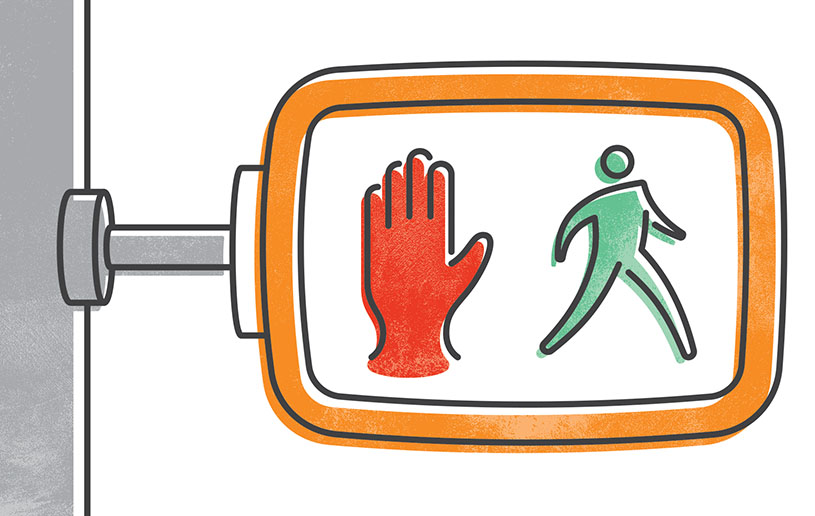
One area many of us struggle with is trusting God to act versus acting ourselves. We wonder, when do I wait on God to act and when do I act?
In response to this question one person says, “If it’s going to be, it’s up to me!” In contrast, another person says, “Let go and let God!”
Is there a balance somewhere? If so, how do we find it?
One of my former Bible teachers often said, “The hardest thing in the world is to keep balanced!” I never thought too much about it then but as life has ticked away, I’ve realized one of our greatest challenges is finding and keeping balance in the Christian life. Like a person on a tightrope, it’s never an effortless stroll. Keeping our Christian life balanced requires continual effort.
There are many areas we battle to find balance. In Scripture, we find statements and situations that appear to be in conflict. For example, Jesus said, “...if you had faith even as small as a mustard seed...nothing would be impossible” (Matthew 17:20). And yet Paul asked God to remove his thorn in the flesh, but never got what he requested (2 Corinthians 12:1–10).
Jesus told us to pray, “Give us today the food we need,” (Matthew 6:11). But Scripture also says, “Those unwilling to work will not get to eat” (2 Thessalonians 3:10). It also tells us we must provide for our household (1 Timothy 5:8).
It’s important to keep in mind that just as Jesus spoke to the arrogant and self-righteous differently than the broken, contrite, and desperate, the Bible speaks to people according to who they are and what they are like.
To the people whose tendency is to act independently and take matters into their own hands, Scripture says, “Be still in the presence of the Lord, and wait patiently for him to act.” (Psalm 37:7). It says, “Don’t say, ‘I will get even for this wrong.’ Wait for the LORD to handle the matter” (Proverbs 20:22).
To the people who tend to be passive, procrastinating, or presuming on grace, the Bible prods with, “work out your salvation with fear and trembling” (Philippians 2:12 NIV) and “...make every effort to add to your faith goodness... make every effort to confirm your calling and election” (2 Peter 1:5, 10).
It’s also important to keep in mind that the Bible also equips us to respond in different ways to ever-changing circumstances and needs. “For everything there is a season, a time for every activity under heaven” (Ecclesiastes 3:1). An action required at one time may not be required another time.
Knowing which biblical emphasis to follow requires spiritual discernment, along with understanding the kind of person you are and the situation you are in.
In some places Scripture doesn’t address a particular type of person or specific situation. It brings both aspects together and spells out the balance for us. “Trust in the LORD and do good” (Psalm 37:3, italics added) “What is important is faith expressing itself in love” (Galatians 5:6, italics added).
The reality is that it is not an either/or issue of trusting God to act or us acting alone. It is a both/and issue of trusting fully and acting wisely according to God’s revealed will in Scripture.
In all situations we should be praying and trusting the Lord. We find the biblical balance in life when we trust God to provide our life’s necessities and when we also work while wholly trusting God to use our effort to provide the things we need. We need to do what we can to bring about the answer to our prayer by acting in harmony with the general principles God has given in His Word. Trusting God does not contradict working to bring about what we pray for but rather faith works together with our efforts.
What about when we don’t know what general principles God has given? In those times we should ask, “What is the loving thing to do?” then do that.
And in those situations where we think there is absolutely no action to take, we can always express our dependence on the Lord to act by praying. It’s always wise and always our responsibility. For the Christian there is never nothing to do—there is always prayer.
God is always working to carry out His plans and I can trust Him fully while I act to carry out His will as revealed in Scripture. Paul combined these two aspects when he wrote, “That’s why I work and struggle so hard, depending on Christ’s mighty power that works within me” (Colossians 1:29).
Keeping balanced on when to wait on God and when to act is summed up by the Arab sage who quipped, “Trust in the Lord, but tie up your camel.”

